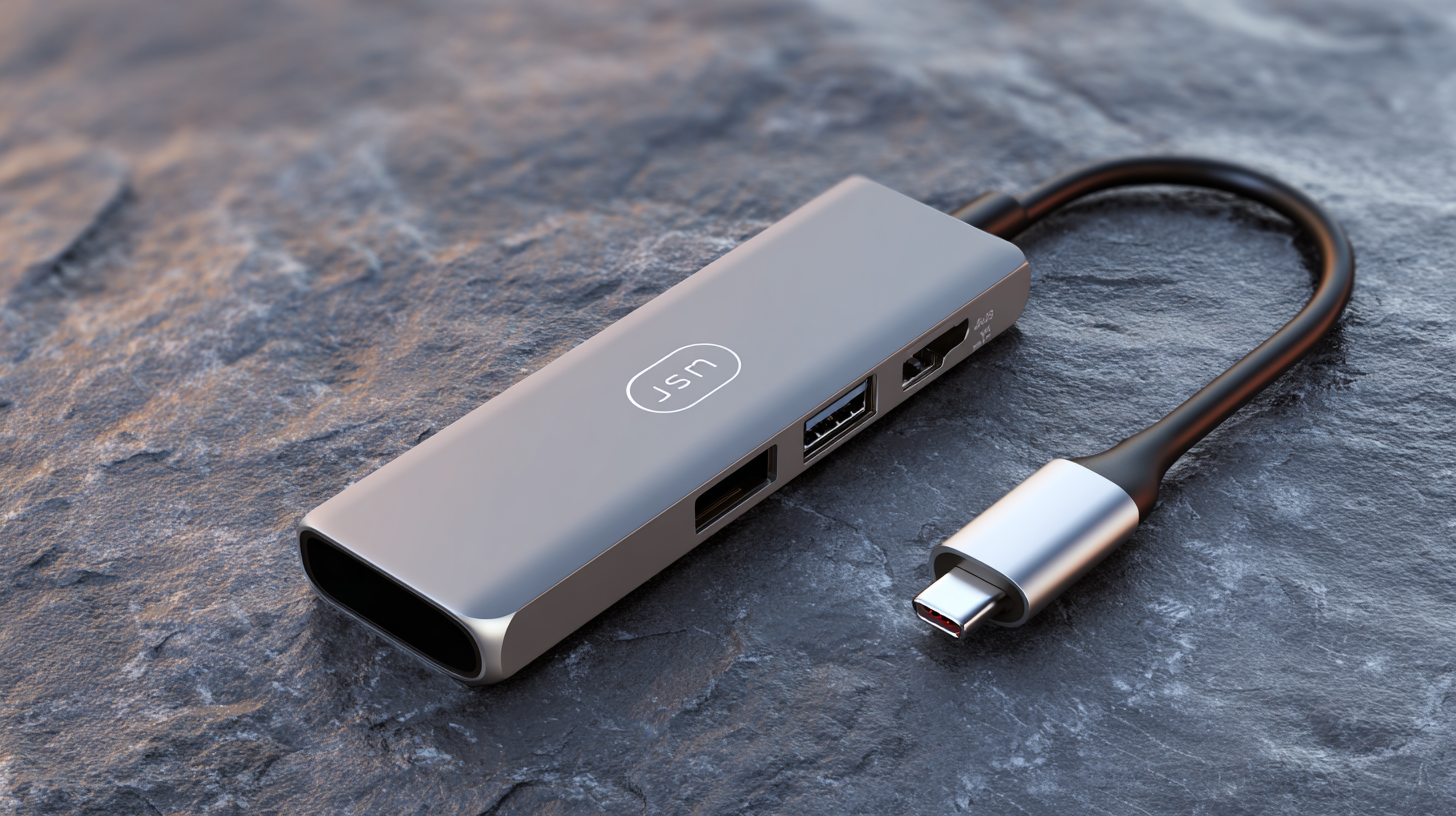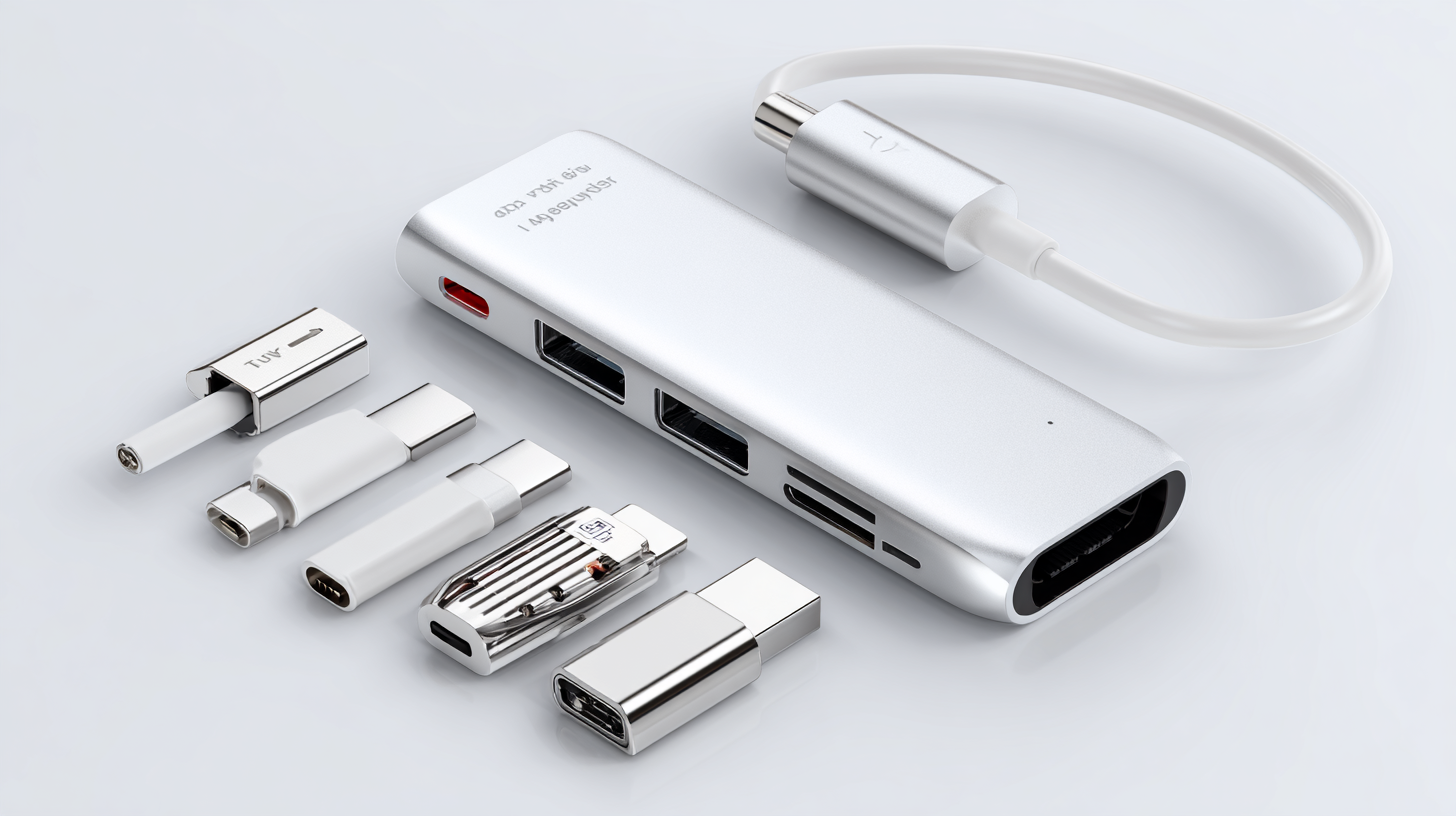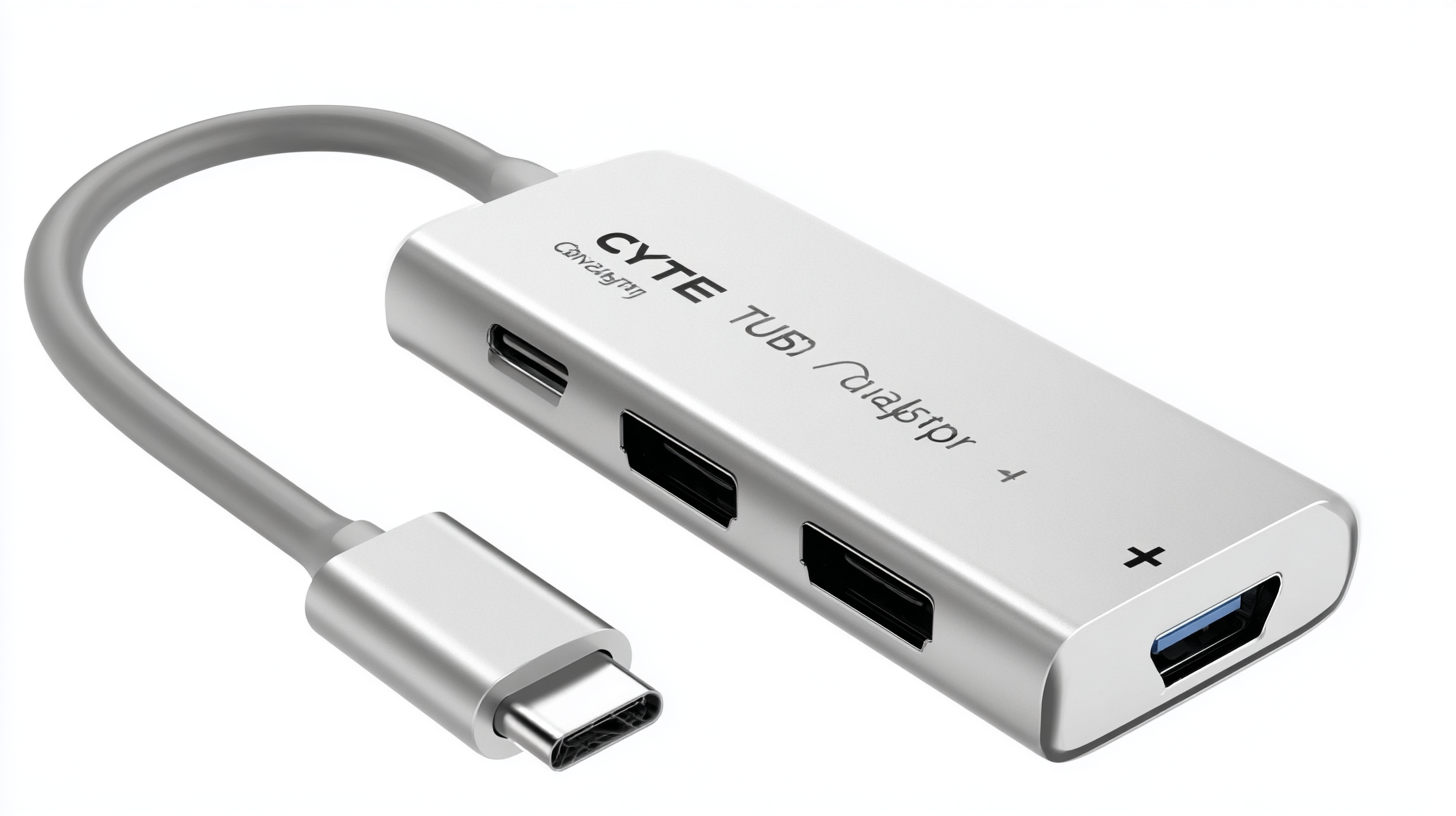
-
Home
-
Products
-
About Us
-
OEM&ODM
-
News
-
Contact Us
Inquiry
Form loading...

In an increasingly interconnected world, the demand for versatile and efficient connectivity solutions has never been greater. The USB Type C Hub Adapter has emerged as a critical accessory for both individual and organizational needs, facilitating seamless integration across diverse devices and platforms. According to a recent industry report by MarketsandMarkets, the global USB Type-C connector market is expected to reach $30 billion by 2025, growing at a rate of 25.8% from 2020 to 2025. This surge underscores the necessity for products that enhance device compatibility and streamline data transfer processes. With features ranging from multi-port connectivity to high-speed data transfer capabilities, a USB Type C Hub Adapter has become an essential tool for global buyers looking to adapt to the latest technological advancements and maintain efficient digital workflows.

The rising trend of USB Type C hub adapters is a direct response to the increasing demand for versatile connectivity solutions in global markets. According to a recent report by MarketsandMarkets, the global USB Type C market is projected to grow from $1.14 billion in 2021 to $4.57 billion by 2026, reflecting a compound annual growth rate (CAGR) of 32.8%. This surge is driven largely by the proliferation of devices that utilize USB Type C ports, including laptops, tablets, and smartphones, which have become essential in both personal and professional settings.
As consumers and businesses adopt more portable devices, the need for hubs that can seamlessly expand connectivity options becomes more significant. Research from Statista indicates that in 2022, over 50% of PC users reported using USB-C for their primary connections, highlighting a clear shift toward this standard. Furthermore, with the advent of remote work and digital collaboration, users are increasingly relying on USB Type C hub adapters to connect multiple peripherals, such as monitors, external storage, and network connections, into a single, cohesive system. This not only enhances productivity but also simplifies workspace organization, making it an essential tool for today's tech-savvy consumers.
In today’s digital landscape, USB Type C hub adapters have emerged as indispensable tools for global buyers seeking versatility and efficiency. One of the key features that attract international consumers is the ability to support multiple devices and formats. A high-quality USB Type C hub can seamlessly connect laptops, smartphones, and peripherals, allowing users to expand their device's connectivity without compromising speed or performance. This multifunctionality makes it easier for travelers and remote workers to manage their workflows effectively, regardless of location.
Another crucial aspect that appeals to buyers across the globe is the power delivery capability of USB Type C hubs. These adapters allow users to charge their devices while simultaneously utilizing them for data transfer. This is particularly beneficial for those on the go, as it reduces the need for multiple chargers and cables, streamlining the travel experience. Moreover, many adapters are designed with compact, lightweight constructions, catering to the needs of international buyers who prioritize portability without sacrificing functionality. By combining efficiency with convenience, USB Type C hub adapters are swiftly becoming a must-have for tech-savvy individuals everywhere.
| Feature | Description | Importance |
|---|---|---|
| Multiple Ports | Includes USB-A, HDMI, Ethernet, and SD card slots | Increases connectivity options for various devices |
| Fast Data Transfer | Supports USB 3.1 for quick file transfers | Reduces waiting time for transferring large files |
| Compact Design | Lightweight and portable design | Ideal for travel and on-the-go usage |
| Versatile Compatibility | Works with a wide range of devices | Provides flexibility for different user needs |
| Power Delivery | Supports charging while in use | Ensures devices stay powered during operation |
In today's fast-paced tech environment, the shift from traditional USB hubs to USB Type C hub adapters is becoming increasingly pronounced. According to a recent market report from Grand View Research, the global USB hub market is expected to reach $1.38 billion by 2026, driven by the widespread adoption of USB Type C interfaces across leading devices. Unlike traditional hubs that often feature limited compatibility, USB Type C adapters offer a versatile solution, accommodating various devices and functionalities, such as data transfer, charging, and video output—all through a single port.

When considering a USB Type C hub, buyers should note its performance advantages. For instance, USB 3.1 technology can transfer data at speeds of up to 10 Gbps, significantly outperforming USB 2.0, which maxes out at 480 Mbps. This difference highlights the importance of selecting a USB Type C hub that meets the high-speed demands of modern applications.
Tip: When purchasing a USB Type C hub, ensure the model supports Power Delivery (PD) to facilitate faster charging for your devices.
Moreover, USB Type C hubs often feature additional ports such as HDMI, Ethernet, and multiple USB-A outputs, enhancing their functionality compared to traditional hubs. Adopting a USB Type C hub adapter symbolizes a commitment to future-proofing technology needs, ensuring compatibility with upcoming devices.
Tip: Look for hubs with aluminum casings to ensure durability and heat dissipation during extended use.
In today's fast-paced, technology-driven world, USB Type-C hub adapters have become essential tools across various industries. These versatile devices not only provide multiple ports for connecting various peripherals but also enhance workflow efficiency by allowing seamless data transfer and power delivery. Manufacturers and creative professionals, especially in fields like video production and graphic design, can greatly benefit from having multiple devices connected simultaneously, eliminating the hassle of constant plugging and unplugging.
Additionally, as USB Type-C continues to gain traction as the universal standard for connectivity, the relevance of these hubs becomes even more pronounced. Modern hubs come equipped with capabilities such as fast ethernet connections, HDMI outputs, and even charging ports, catering to the needs of every user—from tech enthusiasts to business professionals. The adaptability of USB Type-C hubs ultimately empowers businesses to stay competitive by ensuring their devices are interconnected and readily available for collaboration and productivity, making them indispensable in today's global marketplace.

In today’s fast-paced digital world, USB Type C hub adapters have become indispensable tools for professionals across the globe. User testimonials highlight the transformative impact these compact devices have on productivity. For instance, Sarah, a graphic designer from London, shares her experience of how a USB Type C hub allowed her to connect multiple external displays seamlessly. “I can now multitask effortlessly, switching between design software and presentations without any hassle,” she notes. The ability to connect various peripherals simultaneously has elevated her work efficiency significantly.
Similarly, Alex, a remote worker based in Sydney, emphasizes the importance of portability and adaptability. He appreciates how his USB Type C hub enables him to switch between devices while traveling. “It’s a lifesaver when I need to connect my laptop to projectors or additional screens during meetings,” he remarks. This versatility not only streamlines his workflow but also enhances collaborative efforts with team members. These testimonials reflect a growing recognition among global users that investing in a quality USB Type C hub is essential for maximizing productivity in diverse work environments.